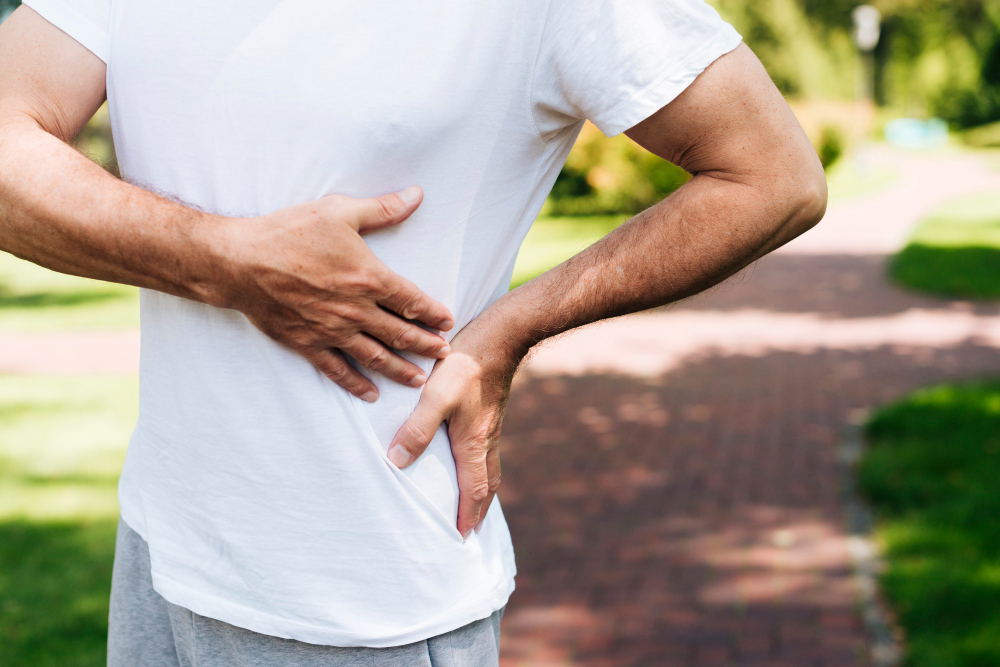Kidney stones can be a real pain – literally. These small, hard deposits can cause immense discomfort when they block the flow of urine. But what exactly are kidney stones, what causes them, and how do you know if you have them? Let's dive into this ultimate guide to kidney stones to understand what they are, their causes, and the symptoms you should look out for.
What is a Kidney Stone?
A kidney stone is a hard, crystalline mineral material formed within the kidney or urinary tract. These stones can vary in size, ranging from as small as a grain of sand to as large as a pebble.
They develop when certain substances in the urine, like calcium, oxalate, and uric acid, become highly concentrated and form crystals. Over time, these crystals can combine and grow into larger solid masses, causing discomfort and pain as they move through the urinary tract.

What are the Causes of Kidney Stone?
Kidney stones arise from various factors, primarily when certain substances in urine—like calcium, oxalate, or uric acid—become highly concentrated and form crystals. This concentration can stem from dehydration, specific diets rich in oxalates or sodium, underlying medical conditions such as hypercalciuria or gout, genetic predisposition, or urinary tract complications.
Dehydration contributes to concentrated urine, while certain diets and metabolic disorders elevate the risk of crystal formation. Addressing these causes involves maintaining adequate hydration, dietary adjustments to reduce specific mineral intake, and managing underlying health conditions to mitigate the likelihood of kidney stone formation.
What are the Symptoms of Kidney Stones?
Kidney stone symptoms can manifest in various ways, often causing intense discomfort. Common symptoms include excruciating waves of pain in the back, side, abdomen, or groin, which can fluctuate in intensity. Individuals may experience pain while urinating or a persistent urge to urinate, along with discolored urine—appearing cloudy, pink, or brown—due to the presence of blood.
Other symptoms include nausea, vomiting, fever, chills, and the sensation of incomplete emptying of the bladder. These symptoms can differ in severity and duration depending on the stone's size, location, and whether it's causing a blockage or irritation within the urinary tract. Seeking medical attention when experiencing these symptoms is crucial for proper diagnosis and timely intervention.
How Are Kidney Stones Diagnosed?
Kidney stones are diagnosed through a combination of methods aimed at confirming their presence and determining their characteristics. Typically, the diagnostic process involves:
- Medical History and Physical Examination: The doctor discusses symptoms and conducts a physical exam to assess for signs of kidney stones, such as pain or tenderness.
- Imaging Tests: Various imaging techniques like X-rays, CT scans, ultrasounds, or intravenous pyelograms (IVP) are used to visualize the urinary tract and identify the presence, size, and location of stones.
- Urine Tests: Analysis of urine helps in detecting substances that can contribute to stone formation, such as minerals or crystals.
These diagnostic methods collectively help healthcare professionals confirm the presence of kidney stones, assess their size and location, and determine the most appropriate course of treatment.

How Are Kidney Stones Treated?
The treatment for kidney stones largely depends on their size, location, composition, and the severity of symptoms. Here are various approaches:
- Pain Management: Pain relief is often a primary concern. Over-the-counter pain medications may alleviate discomfort. In severe cases, stronger prescription medications might be necessary.
- Hydration and Observation: For smaller stones that can pass naturally, increased fluid intake helps flush them out. Observation with pain management might be recommended until the stone passes.
- Medications: Certain medications can aid in stone dissolution or prevent their formation by altering urine composition. These include alpha-blockers to relax the ureter muscles or medications to reduce stone-forming substances.
- Extracorporeal Shock Wave Lithotripsy (ESWL): This non-invasive procedure uses shock waves to break large stones into smaller pieces, making them easier to pass naturally.
- Ureteroscopy: A thin scope is inserted through the urethra and bladder to reach the stone, allowing for its removal or fragmentation using lasers.
- Surgery: In rare cases or for larger stones, surgical procedures like percutaneous nephrolithotomy (PNL) might be necessary to remove the stones using small incisions.
Treatment choice depends on multiple factors, including the stone's size, composition, patient's health, and the severity of symptoms. Consulting a healthcare professional is crucial for determining the most suitable treatment approach.

How to Prevent Kidney Stones Naturally?
Preventing kidney stones naturally involves maintaining adequate hydration by drinking plenty of water to dilute urine and minimize mineral concentration. Dietary adjustments play a significant role, reducing intake sodium to prevent calcium build-up in urine, and ensuring a balanced diet.
Managing weight through healthy eating and regular exercise is crucial, as obesity and rapid weight fluctuations can heighten the risk of stone formation. Monitoring and controlling underlying medical conditions that contribute to stone formation, along with periodic medical check-ups, are essential for a proactive approach to kidney stone prevention.















